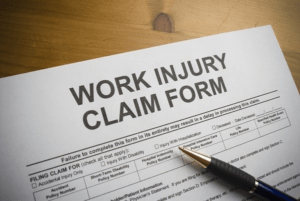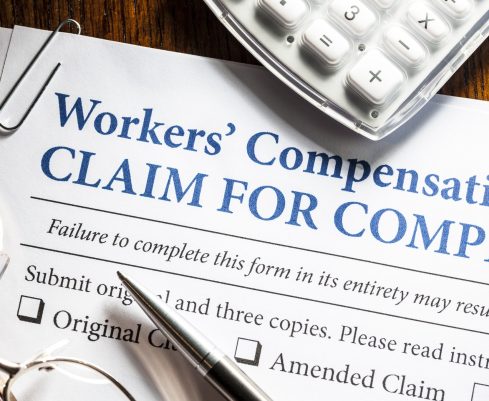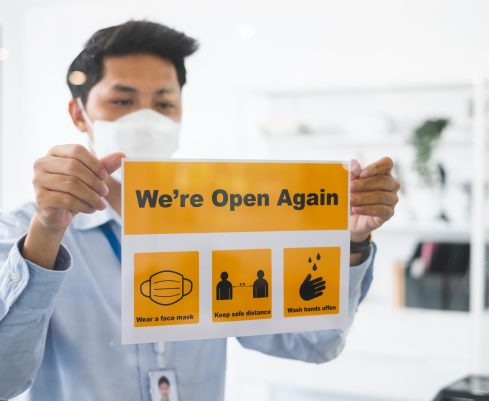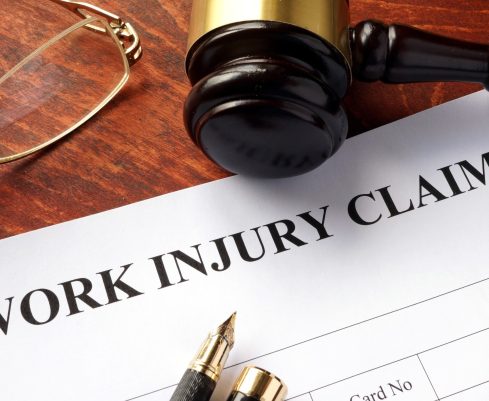 The New Jersey Workers' Comp system is a system put in place to guide us as to what is covered and what benefits should be provided. While we all want to feel safe in our workplaces, accidents do happen. When these accidents cause injury to a worker, the worker may file a claim in this system in order to benefit their own well being.
The New Jersey Workers' Comp system is a system put in place to guide us as to what is covered and what benefits should be provided. While we all want to feel safe in our workplaces, accidents do happen. When these accidents cause injury to a worker, the worker may file a claim in this system in order to benefit their own well being.
What is Workers' Compensation and How Does it Work?
To put it simply, workers’ compensation is a system put in place to protect employees and their families in the unfortunate event that they are injured or killed while working, either by an accident or occupational disease. Workers’ compensation provides medical care and benefits to the injured employee. In the event that the employee is killed, the benefits will go to the employee’s dependents or family. If a New Jersey worker is injured and disabled for more than seven days, they can receive tax-free temporary disability benefits in an amount up to 70% of their normal wage. Along with medical care and temporary disability benefits, the injured worker is also eligible for a monetary award for any injury that is proven to be permanent.
Who is Covered by Workers' Compensation?
Most employers are required to have workers’ compensation insurance in New Jersey. This includes corporations, partnerships, LLCs, sole proprietorships, and non-profits. Even seasonal and part-time workers are covered by worker’s compensation insurance. Using this logic, most New Jersey employees are covered by workers’ compensation.
There are a few exceptions to be mindful of, however. Volunteers and unpaid interns may not be covered under workers’ compensation, unless in the specific case that volunteers are working in rescue and first aid. For example, a volunteer firefighter may be eligible for workers’ compensation.
In any case, the statute of limitations in New Jersey specifies that the employee, or someone on their behalf, must file a claim for workers’ compensation benefits within two years of the workplace accident. The employee must also put the employer on notice of the accident within 90 days of injury.
What is Covered by Workers’ Compensation?
For an injury to be eligible for workers’ compensation, it must have occurred in the course of employment and resulted in a permanent physical injury. Also eligible for workers’ compensation are illnesses and repetitive stress or strain injuries that are a direct result of employment. For such injuries, a worker is entitled to medical care, temporary disability, and an award for their permanent injury. An injured employee need not prove that the employer was negligent, but only that the injury occurred during the course of employment.
DISCLAIMER: The Case Results should not create an unjustified expectation that similar results can be obtained for others without regard to the specific factual and legal circumstances of your case. No aspect of this advertisement has been approved by the New Jersey Supreme Court.
If you have any more questions regarding workers comp in
New Jersey, please contact Ward, Shindle & Hall.
Workers Comp Law Articles
What is Protected Under New Jersey Worker’s Compensation
Let’s look at what is protected under New Jersey worker’s compensation law and the landmark case of Keim v. Above All Termite & Pest Control....Continue reading→
Volunteer Wins Workers Compensation Case Before New Jersey Supreme Court
Workers compensation is a necessity amongst most businesses, but with a non-profit charity job this sometimes may not be the case. Have you heard the...Continue reading→
COVID-19 and Protections for Employees and Their Families
Even before the current COVID crisis, most employees were afforded some protections by their employer. For example, the New Jersey Family Leave Act (NJFLA),...Continue reading→
Subrogation Claims by New Jersey Workers’ Compensation Carriers Permitted Against PIP Carriers
Recently, the New Jersey Supreme Court expressly determined that Workers’ Compensation benefits are to work synergistically with Personal Injury Protection (PIP) benefits that are required...Continue reading→
How Is Employment Status Determined For Purposes of NJ Workers’ Compensation Coverage?
A Plaintiff who recently received a workers’ compensation award saw his judgment vacated on appeal because the trial judge did not make any witness credibility...Continue reading→
Recent Case Analyzes New Jersey Pregnant Worker’s Fairness Act
A pregnant police officer who challenged her employer’s maternity standard operating procedure (SOP) will be able to proceed with her lawsuit after the New Jersey...Continue reading→
New Jersey Woman’s Claim for Workers’ Compensation Total Disability Benefits Under Odd Lot Doctrine Denied
A petitioner in a workers’ compensation case who argued for total disability under New Jersey’s odd-lot doctrine, lost when the judge found that both her...Continue reading→
A Synopsis of NJ Workers’ Compensation Benefits
Workers’ Compensation provides benefits to an employee who suffers a personal injury or death arising out of, and in the course of, his or her...Continue reading→
New Jersey Expands Wage Laws to Create Greater Penalties and Liability for Employers
On August 6, 2019, New Jersey enacted a new law increasing penalties and liability for employers who commit wage violations. The law revises New Jersey’s...Continue reading→
Medical Marijuana is a Valid Benefit Under Workers’ Compensation Law Says New Jersey Appellate Court
On January 23, 2020, the New Jersey Appellate Division ruled in the case of Hager v. M&K Construction that New Jersey workers’ compensation insurance carriers cannot...Continue reading→
NJ Employee’s Injury on Public Street Ruled Not Compensable Under Workers’ Compensation Law
Employees who cross public highways while walking to and from commuter lots may not be covered by New Jersey workers’ compensation laws in the event...Continue reading→
Volunteer Not Entitled to NJ Workers’ Compensation Benefits
A worker who was injured while volunteering for a “Family Fun Day” organized by her employer, and situated on her employer’s property, was not...Continue reading→
Sorry, the Stomach Virus is Not a Disability Under NJ Discrimination Law
James Riconda worked for US Foods, Inc. as a warehouse selector for about two years before he was fired. A few days prior to his...Continue reading→
Workers’ Compensation Bar Does Not Prevent Third-Party Claims
While it is true that injured workers in New Jersey have limited options to pursue claims against their employer, there may be the opportunity to...Continue reading→
NJ Workers’ Compensation Benefits Are Extent of Recovery For Experimental Nasal Spray Tester
In the recent New Jersey Appellate Division case of Bove v. AkPharma, the Court prohibited an employee from suing his employer at common law for...Continue reading→















